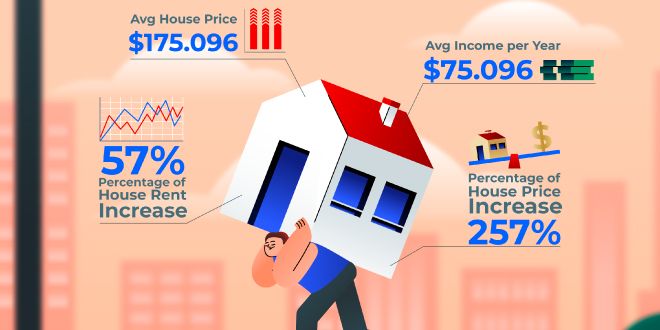Our essential first-time homebuyer guides demystify the process in 7 clear steps. From mortgage pre-approval to closing day, learn how to buy with confidence.
The Ultimate First-Time Homebuyer’s Guide for 2025
Feeling overwhelmed by the thought of buying your first home? You’re not alone. It’s a huge milestone, and the path from hopeful browser to happy homeowner can seem complicated. But it doesn’t have to be. The secret is breaking it down into manageable steps. This guide does just that, walking you through the entire journey from financial prep to getting your keys.
At its core, the home-buying process involves getting your finances in order, securing a loan pre-approval, finding a great agent and the right home, making an offer, completing inspections and the appraisal, and finally, signing the closing documents. Let’s dive in.
Before You Start: A Quick Financial Health Check
Before you even start looking at listings online, the most important step happens at your own desk. Getting your finances in shape will determine your budget, your mortgage rate, and the overall smoothness of your home-buying journey. Think of it as building a solid foundation before putting up the walls.
- Check Your Credit Score: Your credit score is a major factor for lenders. A higher score often means a lower interest rate, which can save you tens of thousands of dollars over the life of your loan. Grab a free copy of your credit report from a site like the Consumer Financial Protection Bureau to see where you stand and dispute any errors. Aim for a score of 620 or higher, though 740+ will get you the best rates.
- Calculate Your Debt-to-Income (DTI) Ratio: Your DTI is all your monthly debt payments (student loans, car payments, credit cards) divided by your gross monthly income. Most lenders look for a DTI of 43% or less.
- Save, Save, Save: You’ll need cash for two main things: the down payment and the closing costs.
- Down Payment: While 20% is the traditional figure to avoid Private Mortgage Insurance (PMI), many loan programs allow for much less. FHA loans, for example, can require as little as 3.5% down.
- Closing Costs: These are the fees for services that finalize the real estate transaction, typically running between 2% and 5% of the home’s purchase price.
Table of Contents
Your 7-Step Roadmap to Buying Your First Home
Once your financial footing is solid, you’re ready to start the real adventure. Here’s the step-by-step path you’ll follow.
Step 1: Get Mortgage Pre-Approval
This is your golden ticket. A pre-approval is a letter from a lender stating they are tentatively willing to lend you a specific amount of money. It shows sellers you’re a serious, qualified buyer. You’ll submit financial documents like pay stubs, tax returns, and bank statements. This is also the time to start understanding your mortgage options, from FHA and VA to conventional loans.
Step 2: Find the Right Real Estate Agent
Don’t just go with the first agent you find. A great agent is your advocate, negotiator, and guide. They should be an expert in your desired area and have experience working with first-time buyers. Interview at least three agents to find someone you trust and connect with. When you’re ready to partner with an expert agent, look for someone who listens to your needs.
Step 3: The Fun Part—House Hunting!
Now you can finally start looking at homes! Your agent will set you up with listings that match your pre-approved budget and wish list. Be realistic and open-minded. The perfect home might not have every single thing you dreamed of, but it should meet your core needs for space, location, and lifestyle.
Step 4: Make a Smart Offer
Found the one? Your agent will help you craft a competitive offer based on a comparative market analysis (CMA), which looks at what similar homes in the area have recently sold for. Your offer will include the price, proposed closing date, and any contingencies (like a satisfactory home inspection).
Step 5: You’re Under Contract! The Due Diligence Phase
Once the seller accepts your offer, you enter the “due diligence” or “contingency” period. This is a critical time (usually a few weeks) to learn everything you can about the property. The two biggest hurdles here are:
- Home Inspection: A professional inspector will examine the home’s structure, systems (plumbing, electrical), and overall condition to uncover any potential issues.
- Home Appraisal: Your lender will order an appraisal to ensure the home is worth the price you’ve agreed to pay.
Step 6: Final Loan Approval and Final Walk-Through
While the inspection and appraisal are happening, your lender’s underwriting team will be working on the final approval for your loan. Once you get the “clear to close,” you’re in the home stretch! Right before closing day, you’ll do a final walk-through of the property to make sure it’s in the same condition as when you agreed to buy it.
Step 7: Closing Day!
This is the day you officially become a homeowner. You’ll sign a mountain of paperwork, pay your remaining down payment and closing costs, and receive the keys to your new home. It’s a moment of pure excitement and accomplishment. The entire process can feel like a marathon, but working with NexMove’s team of dedicated professionals can ensure you cross the finish line with confidence.
Frequently Asked Questions
How much money do I really need to buy a house for the first time? You’ll need funds for the down payment and closing costs. The down payment can range from 3.5% (FHA loan) to 20% of the home’s price. Closing costs typically add another 2-5%. Don’t forget to look into state and local down payment assistance programs that can significantly reduce your upfront costs.
What is the very first step to buying a house? The true first step is a financial health check: know your credit score, calculate your debt-to-income ratio, and determine how much you can comfortably save and afford for a monthly payment. Once that’s done, getting a mortgage pre-approval is the first official step in the buying process.
What credit score is needed to buy a house in 2025? Requirements vary by loan type. For a conventional loan, you’ll generally need a minimum score of 620. For an FHA loan, the minimum can be as low as 580 with a 3.5% down payment. However, to secure the most favorable interest rates, a score of 740 or higher is recommended.
Your Keys, Your Future
Buying your first home is one of the most rewarding experiences you’ll ever have. It’s more than just a financial transaction; it’s about building a future and creating a space that is truly yours. By following these steps and preparing properly, you can navigate the process with confidence and turn your dream of homeownership into a reality.
Take Your Next Step
Ready to begin your journey? The expert team at nexmove.us is here to provide personalized guidance and support for every first-time homebuyer.
 NexMove Home & Investment Guide Find Your Perfect Property, Invest Wisely.
NexMove Home & Investment Guide Find Your Perfect Property, Invest Wisely.



